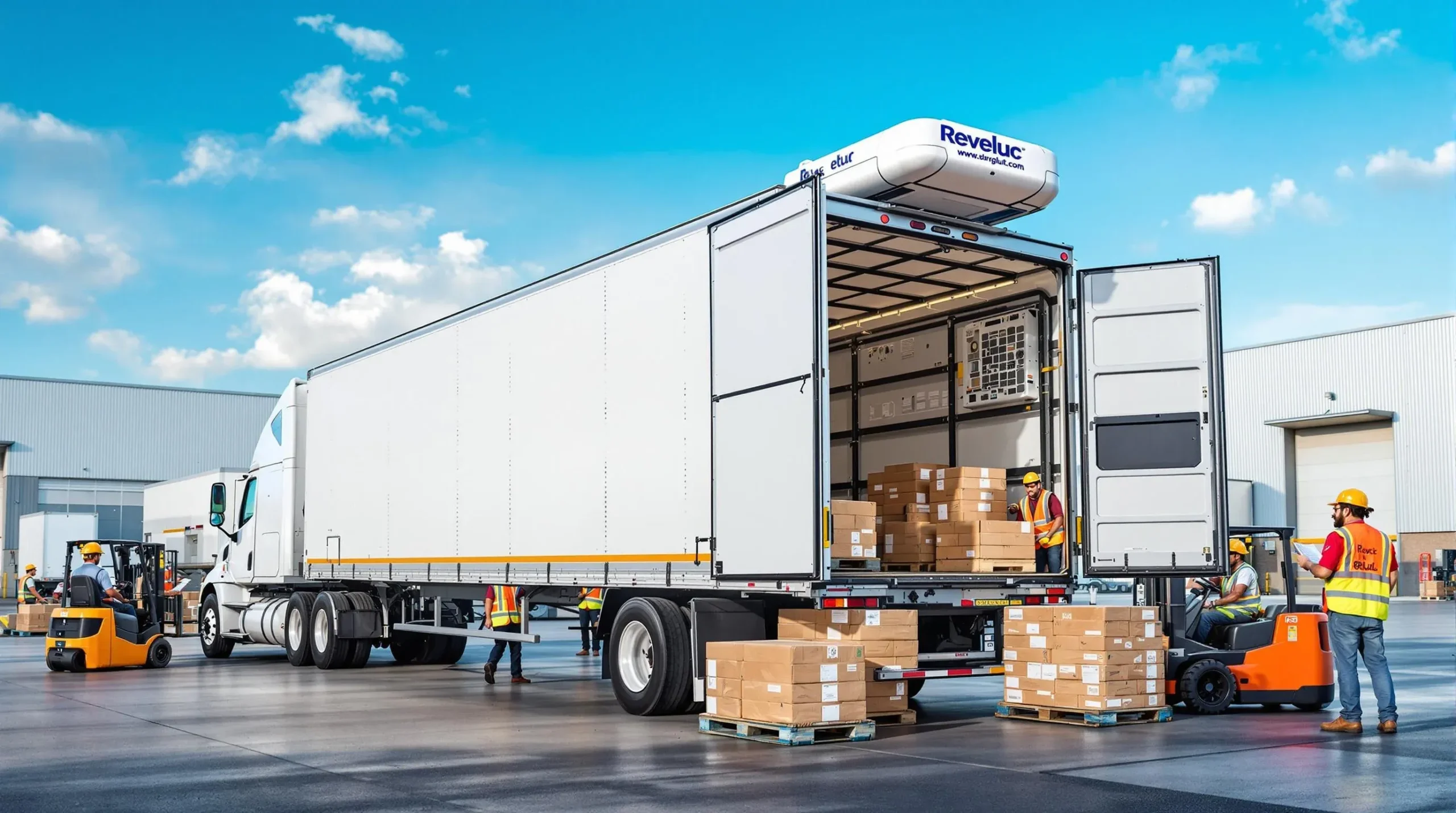Reefer Truck Reefer: 11 Expert Tips for Better Efficiency
Ever wondered how fresh food and temperature-sensitive goods make it across the country? The answer often involves a reefer truck reefer, a vital piece of the modern supply chain. These specialized trucks, also known as reefer lorries or refers refrigerated trucks, are essentially refrigerators on wheels, ensuring that everything from ice cream to pharmaceuticals arrives in perfect condition.
Why Temperature Control Matters in Refrigerated Trucking
Think about the last time you bought groceries. You expect your milk to be cold and your frozen peas to be, well, frozen. This expectation is met thanks to refrigerated trucking. The core of a reefer truck is its refrigeration unit, a sophisticated cooling system designed to maintain precise temperature requirements. Without this temperature control, perishable goods would spoil, leading to significant waste and potential health risks. This is why understanding the reefer truck meaning is so important for businesses and consumers alike.
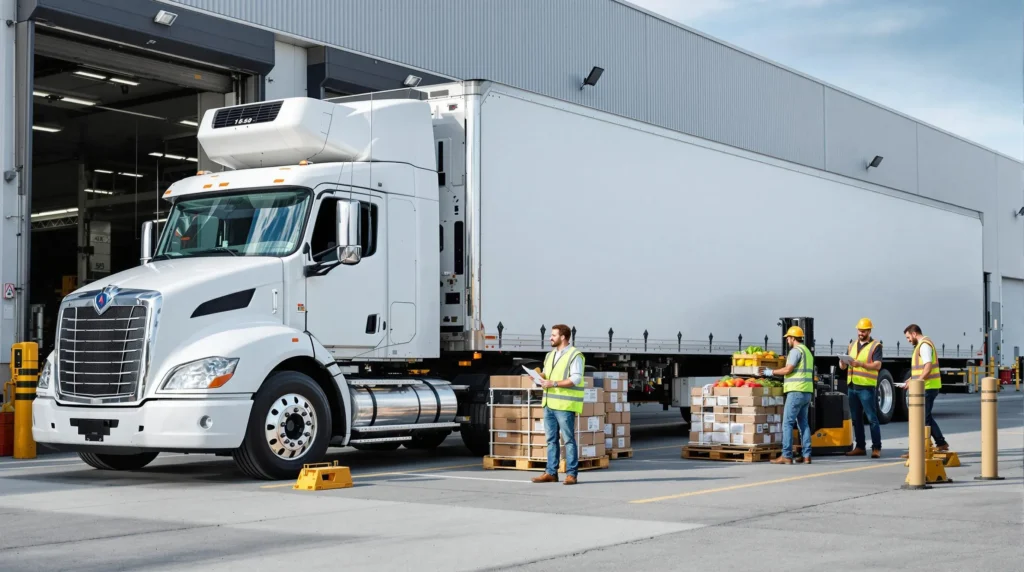
The difference between a dry van and a reefer is stark. While a dry van is a standard enclosed trailer for general dry freight, a reefer has insulated walls and that crucial refrigeration system. This system actively removes heat from the trailer, allowing for the transportation of temperature controlled freight. Whether it’s keeping produce from ripening too quickly or ensuring medications remain effective, the reefer unit is the workhorse of this industry. You might also hear the term refrigerated trailers, which essentially refers to the same concept – a trailer equipped for temperature-sensitive transport.
Consider the transportation of vaccines. Many vaccines require temperature to be kept within a very narrow range. A failure in the maintaining temperatures process could render an entire shipment useless. Similarly, transporting fresh seafood requires careful temperature requirements to prevent spoilage. These examples highlight why reefer transportation is a specialized field, often requiring additional insurance and skilled operators.
Did you know that the global market for refrigerated road transport was estimated at over $15 billion in 2023? This figure underscores the massive scale and importance of keeping things cool on the move.
Inside the Reefer: Understanding the Technology
The heart of a reefer truck reefer is, of course, the refrigeration unit. These units are complex pieces of machinery, designed for reliability and efficiency. They work by circulating a refrigerant that absorbs heat from inside the trailer and releases it outside. Modern units offer precise temperature control, allowing operators to set and maintain the exact conditions needed for their reefer loads.
Before loading, it’s crucial to ensure the trailer is pre cooled to the desired specific temperature. This prevents a sudden temperature shock to the cargo. Think of it like preheating your oven before baking – it ensures a consistent environment from the start. The insulation of the trailer is also critical. Thick, well-sealed walls minimize heat transfer, helping the refrigeration system work efficiently.
The Food and Drug Administration maintains strict guidelines for food transport temperatures, which all reefer operators must follow.
While the primary function is cooling, some reefer units can also provide heating. This is important for protecting goods that need to be kept from freezing, such as certain chemicals or sensitive electronics. The ability to both cool and heat makes these trailers incredibly versatile.
Maintaining these units is a crucial aspect of refrigerated trucking. Regular servicing ensures the cooling system operates effectively and prevents breakdowns that could compromise the cargo. Sophisticated monitoring systems often track the temperature inside the trailer, providing real-time data and alerts if any deviations occur.
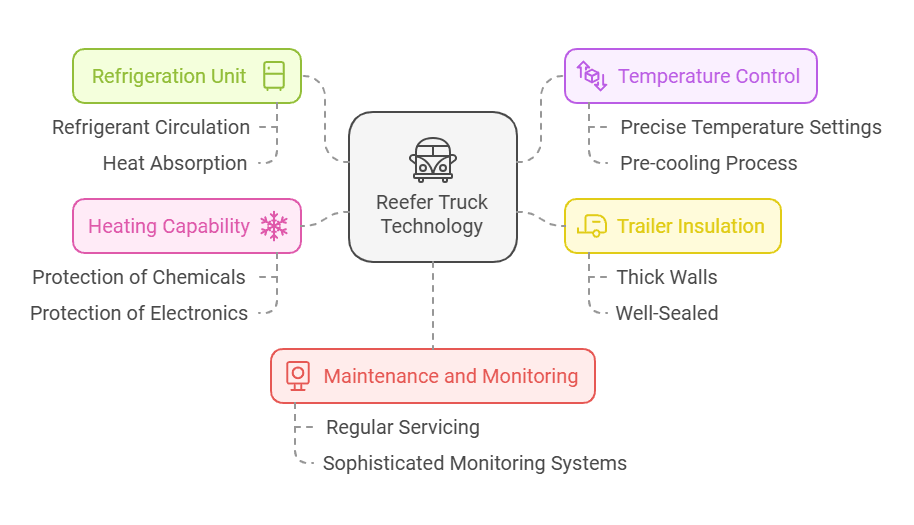
If you’re curious about different types of trucks, you might find our article on the 2025 Caterpillar Pickup Truck interesting for a comparison.
According to the Global Cold Chain Alliance, modern reefer monitoring systems can reduce temperature-related cargo losses by up to 30%.
The Journey of Refrigerated Freight
The journey of refrigerated freight is a carefully orchestrated process. It starts with understanding the temperature requirements of the goods being transported. Shippers provide detailed instructions, specifying the exact temperature range that must be maintained throughout the journey.
Loading the reefer correctly is also vital. Air needs to circulate around the cargo to ensure even cooling. Improperly stacked reefer loads can create “hot spots” where the temperature isn’t adequately controlled. Drivers of these reefers truck play a critical role, constantly monitoring the temperature and the performance of the reefer unit.
The routes taken by reefer transportation may also be planned to minimize exposure to extreme temperatures. During very hot weather, for example, drivers might choose routes that avoid the hottest parts of the day or opt for overnight travel.
The rise of technology has significantly impacted reefer transportation. GPS tracking allows for real-time monitoring of the truck’s location and temperature. This provides transparency for both the shipper and the receiver, ensuring the integrity of the temperature controlled freight.
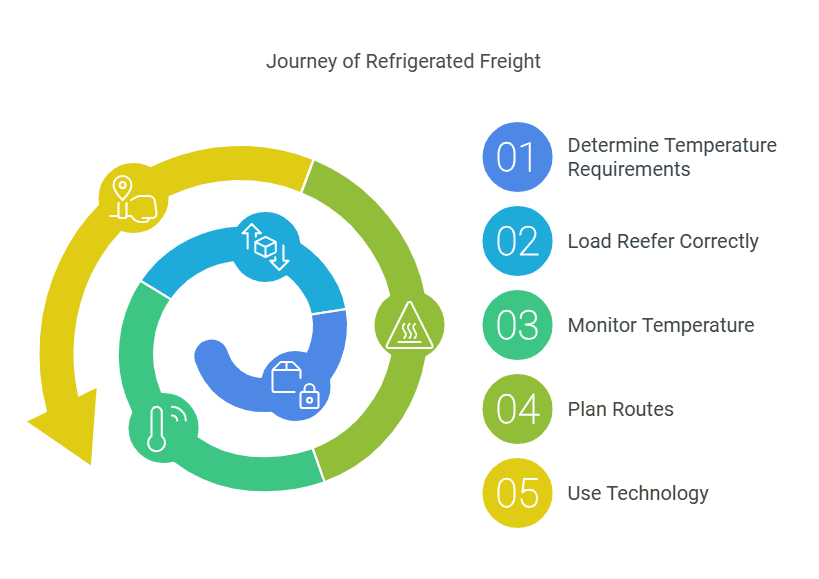
For those interested in the trucking industry, you can learn more about what a career entails by reading our article on what does a truck driver job entail?.
Challenges and the Future of Reefer Trucks
While reefer trucks are essential, they also face challenges. Fuel efficiency is a constant concern, as running the refrigeration unit consumes fuel. Manufacturers are continually working on developing more energy-efficient units and exploring alternative power sources.
The North American Transportation Research Institute reports that fuel costs for refrigerated units can account for up to 25% of operational expenses.
Environmental regulations are also playing an increasing role. The refrigerants used in these units can have a significant environmental impact, and there’s a push towards using more environmentally friendly alternatives.
The demand for reefer transportation is expected to continue growing, driven by increasing global trade in perishable goods and pharmaceuticals. Innovations in technology, such as improved insulation materials and more sophisticated cooling systems, will further enhance the efficiency and reliability of reefer truck reefer operations.
Thinking about getting into trucking? Our article on is truck driving a good career? might provide some valuable insights.
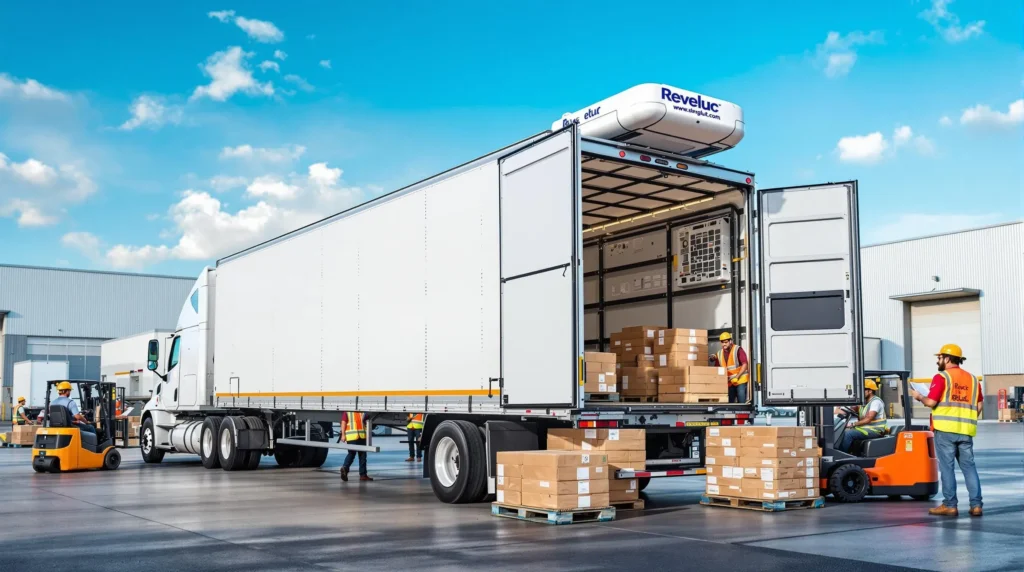
Reefer Truck Reefer: More Than Just a Cold Box
In conclusion, the reefer truck reefer is a cornerstone of modern logistics, enabling the safe and efficient transport of temperature-sensitive goods. From the sophisticated refrigeration unit to the careful handling of reefer loads, every aspect of reefer transportation is designed to maintain the integrity of the cargo. Understanding the reefer truck meaning and the technology behind it highlights the crucial role these vehicles play in our daily lives, ensuring we have access to fresh food and essential products, regardless of distance.
What are your thoughts on the importance of reefer trucks? Share your comments below!
Let me know if you would like any adjustments or further refinements to this article!
There are no reviews yet. Be the first one to write one.

